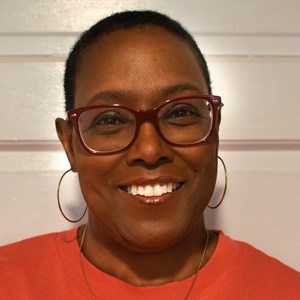“In any case,” said Anaa, “I have had four children, and I know that each time a baby came out of me, I died a little. Somehow, my sister, there is a most miniscule fraction of time when the baby is tumbling out of her womb when the woman in labour dies.”
Ama Ata Aidoo
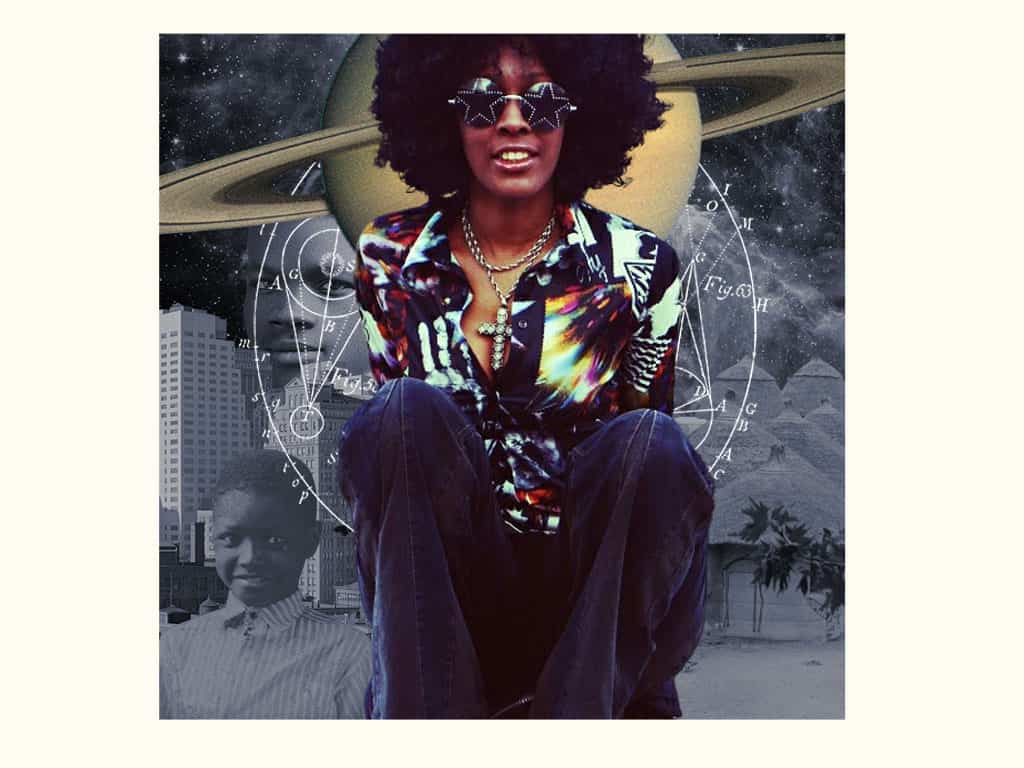
Changes:
A Love Story
Ama Ata Aidoo
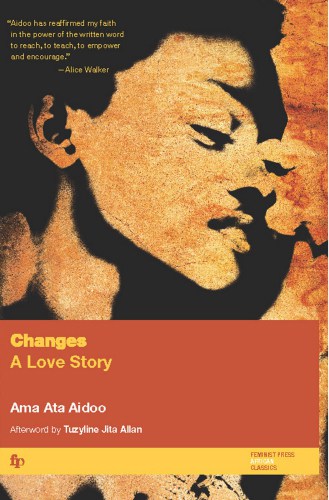
Aidoo, Ama Ata. Changes: A Love Story. Feminist Press at the City University of New York
This is a story about modern African women and their frustration at the status quo where women’s rights are concerned.
This is a story about modern African women and their frustration at the status quo where women’s rights are concerned. At the heart of the story is Esi, an educated woman, unhappily married woman, and mother. Esi has a good job that provides the bungalow she and her husband Oko live in with their daughter. After Oko rapes Esi in a desperate attempt to remind her of her place, she divorces him and sends her child to live with his mother, essentially freeing herself from the traditional gender roles. Shortly after that, to the confusion of nearly everyone she knows, she meets and becomes a second wife to Ali Kondey. Soon, though, even that arrangement creates its challenges and Esi must make some difficult decisions.
Included in Esi’s journey are Opokuya and Fusena. Esi’s best friend, and Ali’s first wife, respectively. From these three women and the elder women in their lives, we learn the joys and pitfalls of life as an African woman.
Why This Text is Transformative?
It touches not just on the gender expectations between men and women, but the intergenerational challenges that inhibit change.
Changes: A Love Story takes us specifically through the lives of African women, but this story resonates with women everywhere. It is about oppression and triumph and failure. It is transformative in that it does not answer any questions, but presents the lives of the women in a way that makes it impossible not to ask the important questions of their lives. Their stories go beyond feminism and into a conversation about the human condition. It touches not just on the gender expectations between men and women, but the intergenerational challenges that inhibit change.
A Focused Selection
Study Questions
Day 1 | Chapters 1-3, 5, 7, 8
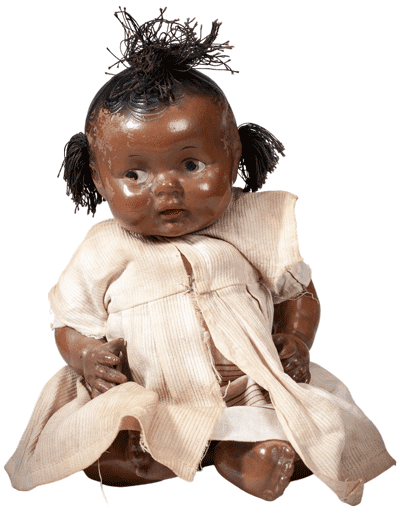
In these chapters we are introduced to Esi, her husband Oko, Opokuya, Ai, and Fusena. Esi divorces her husband after an act of marital rape, a concept which does not exist in her world because men still exclusively make the rules. But Esi knows what has happened, and she knows she doesn’t want to perpetuate that behavior. She leaves their daughter with Oko’s mother while they work things out, but never fully recovers her motherhood status.
Opokuya is happily married with a houseful of children and a job as a nurse. Even that, though, we discover gives her no power. Her husband uses the one car they own to manage and manipulate her time.
Ali meets and falls in love with Esi and begins to court her as his second wife. Fusena, his first wife, was a school mate and friend who put her life plans aside to make a life with Ali.
Class 1
1) At the heart of these pages is the inequities in African society where women are concerned. Do you see any parallels to life in America?
2) After her husband rapes her, Esi divorces him almost immediately. When she goes home to talk to her mother and grandmother about it, they can’t understand why she’s so upset. In their eyes, he’s only exerting his right as her husband, and basically doing what men do. Have you ever had generational differences with another person? Have you tried to have a conversation with someone who simply could not see things the way you do? Did you give up?
3) What do you think of Ali and Fusena based on Chapter 7? What are Fusena’s choices?
4) Esi takes her daughter to her mother in law so that she has a stable environment throughout the divorce. What do you make of this decision? Did you find yourself judging Esi for her decision? What about her decision works or doesn’t work for you?
Day 2 | Chapter 14, 19-23
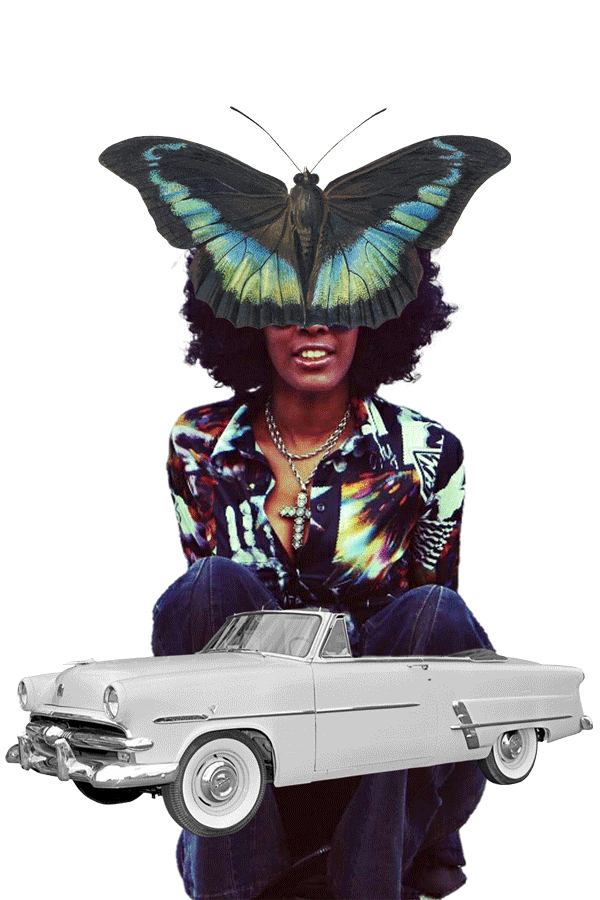
Esi and Oko have divorced, but Oko is not happy about it and still periodically attempts to asset his will on the issue of his relationship to Esi. Meanwhile, Esi’s relationship with Ali is growing, but she’s not sure about becoming a second wife. She goes home to her mother and grandmother but they are of no help as they simply do not understand what she’s looking for.
Esi eventually agrees to marry Ali, and is at first content with the arrangement. She has just the right amount of time to herself. But it doesn’t take long for her to want more, mostly because she knows he’s sharing at least part of his time with his first wife, and she suspects is courting potential wife number three. Ali and Esi have an explosive argument which ends with Ali buying Esi an expensive new car. She gifts her other car to Opokuya, which helps Opokuya maintain what independence she wants.
Esi’s daughter remains with Esi’s former mother-in-law, and eventually Esi gives up trying to have any kind of real maternal relationship with her daughter. Oko remarries. The story ends as it began, with Esi looking for and wondering if she will ever find the kind of love she desires.
Class 2
1) In chapter 14 Esi’s mother and grandmother explain with blunt clarity the role of women as they understand it. What would you tell Esi if was your daughter and she came to you for advice on whether to be a second wife? Do you think Esi’s mother and grandmother were right to be confused that she preferred to be a second wife to having a husband of her own?
2) Do you think you could participate in a polygamous relationship?
3) Esi discovers rather late that she has gone from the frying pan into the fire. Have you ever made a life changing decision that you later regret? Did you try to correct it? Did you live with it?
Building Bridges
A Recommended Pairing
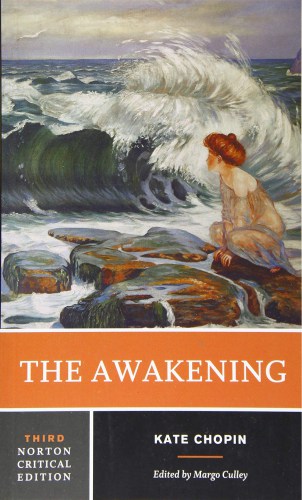
A Vindication of the Rights of Woman pairs well with Kate Chopin’s The Awakening. How does Wollstonecraft’s text provide us with a lens to understand Edna and Leonce’s marriage? How does Wollstonecraft’s discussion of virtue, reason, and education help to explain Edna’s sense of dissatisfaction with her life as well as the failures she meets with in her relationships? Do any of Wollstonecraft’s warnings about an uneducated mother resonate in Chopin’s depiction of Edna?
Supplemental Resources
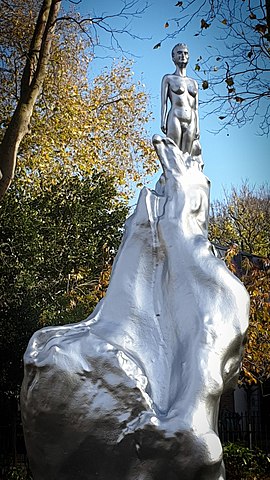
A Sculpture to Mary Wollstonecraft in Newington Green, London. It was sculpted by British artist Maggi Hambling. It was unveiled on November 10, 2020.By Grim23 - Own work, CC BY-SA 4.0
What did Mary Wollstonecraft write about in A Vindication of the Rights of Woman?
Dangerous Minds Episode 4 - Mary Wollstonecraft
Text Mapping
Discipline Mapping
English/Composition Studies
Humanities
Area Studies
Page Contributor
